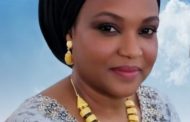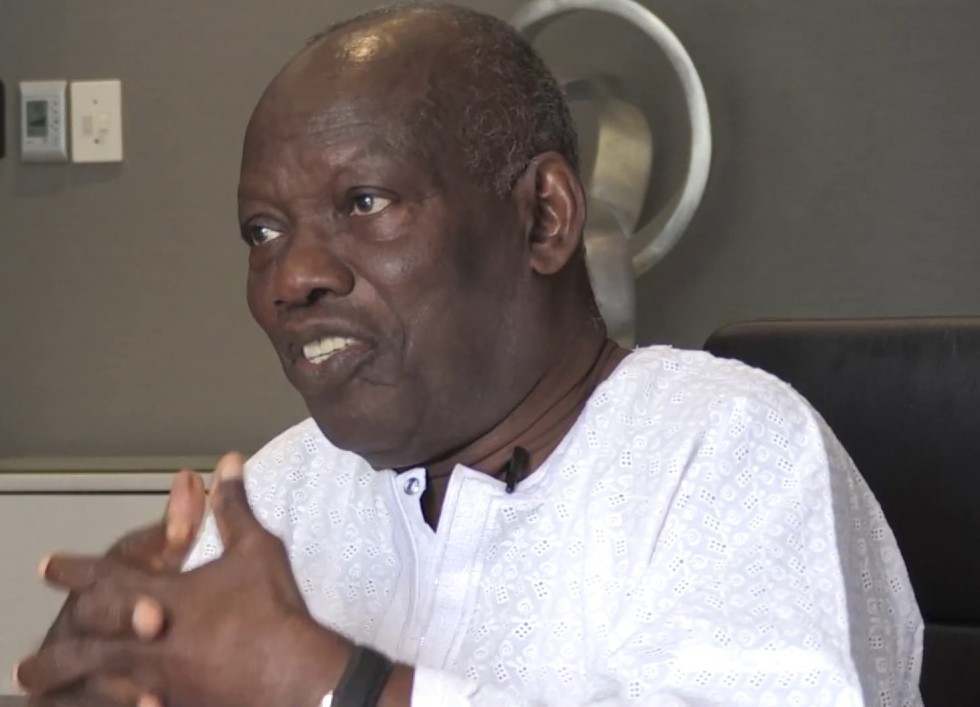By Adagbo Onoja
It is unlikely that anyone ever thought of Prof Jonah Isawa Elaigwu and Chief Audu Ogbeh dying within a space of less than three weeks of each other. Prof Elaigwu died on July 22nd, 2025 while Chief Ogbe died August 9th, 2025.
They both belong to the very best and the brightest of their generation, both in Idomaland and in Nigeria. No other evidence is needed for this beyond the level and circles in which they operated. While Prof Elaigwu served one Head of State with whom he was also a friend, Audu Ogbeh worked with three different Heads of State, one of whom was his personal friend long before they converged in one administration. Although he fell out with one later, that is a problem only for those with a linear mindset that anticipates no turbulence in such relationships.

The late Prof Elaigwu
Suffice it to say that no Head of State who is still alive can forget encountering any of the two, all because, typical of most members of their generation, they were groomed for qualitative leadership. It isn’t just that they went to school, they went to finishing schools which most higher schools in those days were.
So, their death at the same time is a big loss, first to the families and to Nigeria and Idomaland where they both hail from. Anyone who met and spoke with any of the twosome would say this. There is no time one met or spoke with any of them without leaving with something to ponder upon, either about Idomaland or about the trouble with Nigeria.
The comfort in the case of Prof Elaigwu is that he seemed to have prepared for death by leaving nothing to chance. And he died in the hands of his own youngest children. It is difficult to expect more than that. As for Chief Audu Ogbeh, he had served out his share of power and done what was possible in each case.
It will remain a matter of joy to have had the opportunity to talk to him at length when one of his peers needed his input into a project not long ago. As usual, it was an unforgettable encounter. He had aged but the brain was still functioning full blast. It was impossible to talk him without leaving with life time home-truth. The meal which followed remains memorable. The conversation went far and but for the arrival of a VIP friend of his, it could still have continued.
Journalism, more than most other professions, has a way of bringing the typical journalist in contact with the influential players in the society. That was what happened in 1989 when the duo of myself and Dr. Tivlumum Nyitse became Audu Ogbe’s regular visitor at his Efugo Farm on Gboko Road in Makurdi. The two of us were the field commanders of the rebellious variant of journalism the late Simon Tor Melabu came along with as Editor of the Benue Community Concord. ‘Adversary’ or critical journalism made the paper, the editor and reporters popular but hated by people in Government. Col Ishaya Bakut was the military Governor of Benue State. He was followed by Col Idris Garba. Once the two of us interviewed Chief Audu Ogbeh when former Governor Aper Aku died, we became his friends, so to say.
He gave us the guarantee of interceding if anything happened but cautioned us many times. He was not sure how far the society was (and even is) ready for heroism and heroes. There was nothing to lose in visiting him. And we continued that. One of the things we learnt from doing so is that making a success of farming in Nigeria is a mission impossible. Even as at then when things were much easier, he was telling us how badly Obasanjo and other big time farmers were doing in farming, the same sort of thing one still heard from Admiral Murtala Nyako many years after. Yet, Nyako, Audu Ogbeh and Obasanjo would be among the few who could be said to have gone far in that direction. Nyako could be rated as the one who made a breakthrough in farming.
One late morning in 1989, the news spread that Chief Ogbeh had been attacked in that very farm where we used to meet him infrequently. All two of us rushed there but we could only talk to one or two farm hands. He had been evacuated and we just got enough to run a story corresponding to the weight of the event. He seemed to remain vulnerable to attacks of that nature. For a long time in his life.
The highlight of the interaction between the two of us and Chief Ogbeh was our invitation to cover the visit of Prof Wole Soyinka to him in 1989. We followed them wherever they went, laughed when they laughed, even though we were not always sure what each laughter was about. It wasn’t that possible because they were switching between English and French. The most exciting part of the coverage must have been in Prof Ada Ugah’s office. Ugah who became a professor of comparative literature before he was 40 was a cultural meeting point as the then the Benue State Commissioner for Information.

Idoma Voice is not being chauvinistic!
So, Soyinka and Audu Ogbeh went to visit him. If it were when the high and low culture binary still existed, one would have said it was high culture at its best. What did anyone expect when Africa’s first winner of the Nobel Prize in Literature was visiting another speaker of the French Language, a former academic, a technocrat’s technocrat and a former school (if not class) mate and this was happening in the office of a commissioner who had been an academic all his life and a professor of Comparative Literature, with French background for that matter. And they didn’t mind that two journalists, one of whom had just graduated in Literature with a smattering of French. Although Prof Ada Ugah was someone who could easily get angry, he was rated as the guy with elevated praxis to have beefed up an ethnic minority such as Idoma. Then he died.
The Makurdi interaction with Chief Ogbeh ended as survival took each of us in different directions. Although Dr. Nyitse remained in the Makurdi radius, becoming a high government official under the Gabriel Suswam governorship, the Community Concord series itself died even before Chief MKO Abiola got into bad weather in June 12 politics. Some of us left Makurdi entirely.
But the fluidity of life was not done. Chief Audu Ogbeh became National Chairman of the People’s Democratic Party (PDP), the same party with Sule Lamido, the minister one was working with this time. Once it was in a presidential aircraft that was also carrying Nigerian Foreign Affairs Minister to South Africa that I met Ogbeh again. Of course, he and the minister and one other minister were chatting at their own level but I did have the time, to greet him and talk briefly at our landing.
Meeting points reduced after one left Abuja again in 2007 but in late 2012 when I went to his house before leaving the country, he seemed to have more news about me than I had myself. People like Audu Ogbeh are the reasons for any younger Idoma chap to be above board in whatever s/he does because he could access the details with or without you telling him. If you have soiled yourself, then, you might be in moral trouble. So, stay on the clean line.
Nearly everyone from Chief Ogbeh and Prof Elaigwu will be pained at their death at a go. At their age, they didn’t necessarily needed to hold any political position to be very relevant. Their influence lied in their unique advantage in solving puzzles which many either do not have the time or the reflexivity to contemplate, much less solve. That is the point of relevance of their types.
The variegated nature of their experiences placed them in the position to give advice that can hardly fail. All two of them going at the same time depletes the number of people of such stature who can influence national progress from behind the scene, using their background knowledge of how the system works.
For a minority ethnic group as the Idoma, burying two of their types at the same time will be an unquantifiable loss for a long time to come. There is no chauvinism to be apologetic about in saying this here. Ethnic minorities all over the world seek security guarantee and that guarantee comes from nowhere better than the resource persons of such ethnic communities. Too sad!




























